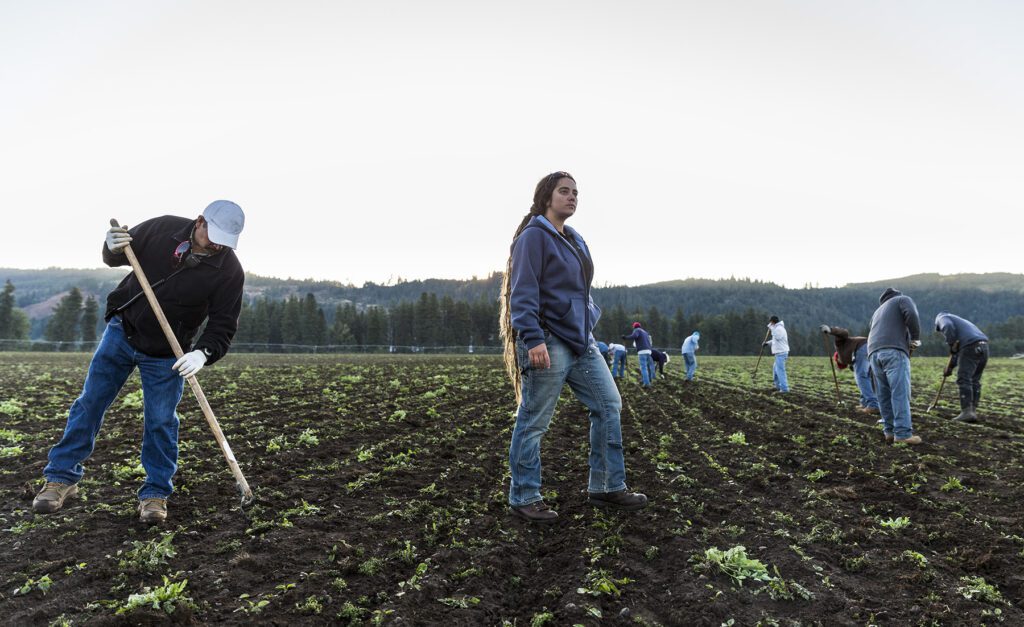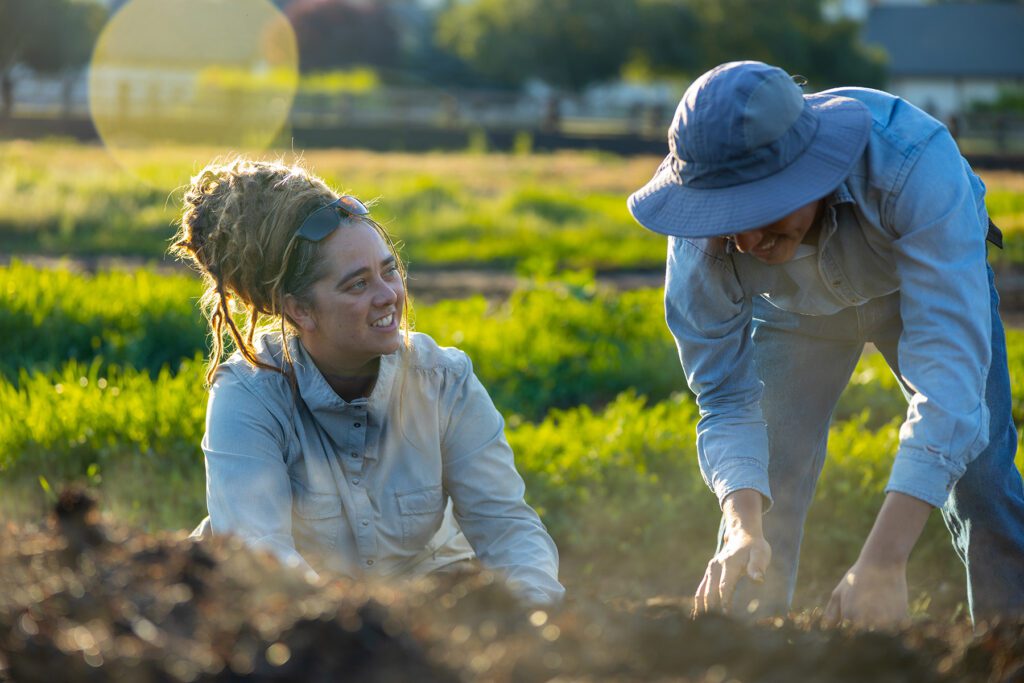BLOG
Trout Lake Farms Manager Brings Scientific Approach To The Soil
Growing up in Cape Cod, Danielle Kruse wasn’t exposed to farming, but she loved hiking and discovering plants. She says her mom was always taking her family camping, which fed her love of nature.

Even Danielle’s early jobs revolved around plants, as she worked in landscaping throughout her high school and college years. Her grandmother, who owns a small farm in upstate New York, was also a big influence on Danielle.
“She has a huge green thumb and loves picking native roadside flowers,” said Danielle, laughingly adding that some of those ‘finds’ probably should have stayed on the roadside and not in her gardens. “They spread so fast!”
So, naturally, Danielle’s studies at Western Carolina University also focused on plants. She earned her degree in biology with a concentration in horticulture, conducting research on trees and native flora in the Carolinas. Her first job out of college was researching potting soil for greenhouses, but it didn’t really suit her.
“I didn’t want to be inside; I needed to find a plant job that was outside,” she said.
At a farming conference she attended as part of her work, Danielle learned that the industry was losing a lot of farmers annually and her mental wheels began to turn.
“It’s a very physical job, but I didn’t mind getting dirty and working hard. I thought maybe farming is my calling.” Danielle began looking for farming internships which brought her all the way to the Pacific Northwest and Amway’s Trout Lake Farms in Washington State.
The internship lasted just a few weeks as Danielle was quickly hired full-time. Her interests and Amway’s mission were a match made in heaven. “I’ve always had a passion toward organics,” she said. “And at Trout Lake, all of the farming practices are chemical-free.”
Initially Danielle’s work was to investigate technologies for the dehydration of herbs, but she quickly advanced to roles like Field Activities Coordinator, Field Supervisor, Farm Lead and finally, Farm Manager, that were more field-work focused. She was responsible for developing a farm-wide safety and documentation system, helping Trout Lake create its first Good Agricultural Practices (GAP) program.
“It was clutch to get quality and safety systems up to a higher standard,” she said.
Learning continues every day for Danielle, as she pursues a certificate in organic agriculture at the University of Washington and as she applies new ideas at Trout Lake Farms. But it all started with regenerative farming. Regenerative agriculture is about restoring the natural ecology of the farm, which is done by improving soil health, water holding capacity, and carbon sequestration.
“Organic farming isn’t the same thing as sustainable farming,” said Danielle, noting that the approach at Trout Lake Farms goes beyond avoiding pesticides and GMOs. “Nature is always showing us how to be sustainable in a circular way, whether it be reuse, recycle and, in our circumstance, regenerating the land,” said Danielle.

“All of this boils down to the importance of soil health. So, cover cropping, composting, this is all about returning nutrients back to the soil and feeding it a balanced diet. And any time you’re increasing organic matter in your soil, you’re also increasing its water-holding capacity. If we can hold moisture in the soil longer, we end up reducing the amount of water we need to irrigate.”
Danielle’s constantly running trials on cover cropping, compost extracts, carbon sequestration and more. To her, Trout Lake Farms is a big, beautiful laboratory to develop better ways to take care of the soil. At the same time, she knows it’s also important to take care of people working the farm.
“Ultimately, my goal in this position is to make the lives of people better and to farm in a better way.”

